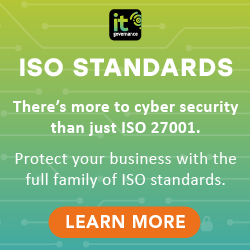Preparing for interview questions
Most peoples nerves before an interview are due to the prospect of answering lots of tricky questions from an interviewer they think is out to trip them up. This is definitely not true. You must remember that you have been invited for an interview because the employer has seen something in your CV or application that makes you stand out from the other applicants. It also takes time and money to organize interviews and liaise with candidates, so it wouldnt be in the employers best interests to try and make life hard for you.
However, you will be required to answer lots of questions at the interview, and some of them might well be tricky. You might feel like there is no hope of knowing what the interviewer will ask, but in fact, most employers ask the same tried and tested techniques. If you prepare well, and have a better idea of what the interviewer might ask you before you go in, it will not only make life easier during the interview itself, but it will also ease those awful pre-interview nerves.
General questions
Interview questions can be divided into two categories: general questions and competency based questions. Examples of general questions include:
What made you choose to study that particular course/at that particular university?
What did you most enjoy about studying the course?
What skills do you feel you have learnt as a result of the course?
What activities did you get involved with outside of your studies?
What did you take out of your work experience/work placement?
Where do you expect your career to take you? Where do you see yourself in 5 years time?
How did you prepare for this interview? Do you know what our services are/who our competitors are?
What can you bring to the role? Why did you choose to apply for this job/at our company?
Competency based questions
Competency based questions will assess your suitability for the job specifically, and whether you have the right skills and experience to carry it out successfully. These could be:
This role requires excellent communication skills. Can you give us an example of when you have used your communication skills to complete a task?
Tell me the last time you encoutered a problem. How did you get around this, what did this teach you, and how would you do it differently now?
What do you envision the main roles and responsibilities of this position to be. Which of your skills do you feel will be needed the most?
The interviewer will ask less competency based questions, but these will be alot more difficult to answer and will require you to expand elaborate more than you did for the general questions. If you are finding it difficult to answer any competency based question, just remember STAR:
Situation – What was the context of the scenario? Where were you and who were you with?
Task – What was the task at hand? What were you required to do? What was your objective?
Action – What action did you decide to take? What decisions did you make and why?
Result – What was the result of your action? What did you achieve and what skills did you develop?
Interview tips
1. Don’t rush an answer. If a question is tricky or complex, it obviously deserves more thought to compose a sufficient response.
2. Be honest and be yourself. It’s tempting to say whatever the interviewer wants to hear, but don’t. Give an honest appraisal of yourself.
3. Relax. The best candidates are always the ones that appear at ease. This is not always as simple as it sounds, but try and enjoy the experience.


